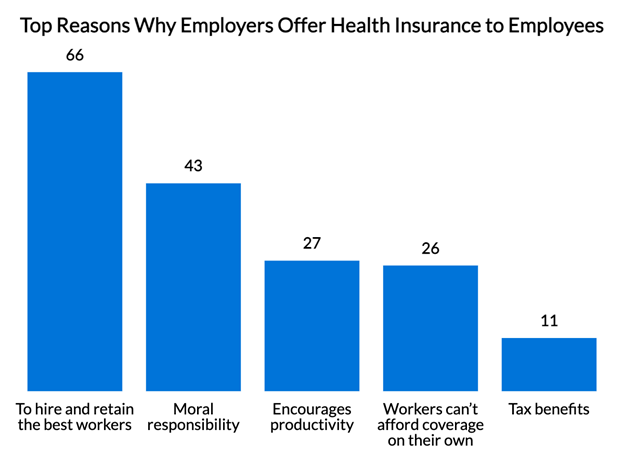What Does Medicare Advantage Agent Mean?
Table of ContentsAbout Medicare Advantage Agent8 Easy Facts About Medicare Advantage Agent ExplainedThe Ultimate Guide To Medicare Advantage AgentMedicare Advantage Agent Things To Know Before You BuyMedicare Advantage Agent for DummiesThe Basic Principles Of Medicare Advantage Agent What Does Medicare Advantage Agent Mean?

Wellness care coverage helps you get the treatment you need and secures you and your household financially if you get sick or wounded. View: Are you suddenly requiring health and wellness insurance? All health prepares require you to.
Rumored Buzz on Medicare Advantage Agent
pay some of the cost of your health careHealth and wellness
The quantities differ by plan. Your wellness strategy may pay 80 % of the price of a surgical treatment or health center stay.
The percentage you pay in coinsurance varies by strategy. You normally do not need to pay coinsurance in an HMO. Federal legislation establishes limitations on the quantity you pay out of pocket in a strategy year. Some strategies have lower out-of-pocket restrictions. After you get to the limitation, you do not have to pay copayments or coinsurance for the remainder of the plan year.
All about Medicare Advantage Agent

The 4 types are: HMO strategies. Special provider (EPO) plans. Preferred provider (PPO) plans. Point-of-service strategies. All 4 types are taken care of treatment strategies. This suggests they agreement with physicians and other healthcare carriers to treat their participants at reduced rates. These companies compose a plan's network. Managed care plans limit your option of doctors or urge you to use doctors in their networks.
The plans vary in the extent to which you can use medical professionals outside the network and whether you need to have a medical professional to oversee your treatment. If you do not, you might have to pay the full cost of your treatment on your own.
You'll likewise have a copayment if you most likely to the emergency clinic or see a specialist. The amounts differ by plan. is an amount you pay for a protected solution after you have actually met your insurance deductible. It's generally a percentage of the price of the solution. For example, your health plan might pay 80 % of the price of a surgery or healthcare facility remain.
Examine This Report on Medicare Advantage Agent
The percentage you pay in coinsurance varies by strategy. Federal legislation establishes limitations on the amount you pay out of pocket in a plan year.
A strategy year is the 12-month duration from the date your insurance coverage began - Medicare Advantage Agent. There are 4 kinds of significant clinical health plans in Texas.
The four types are: HMO plans. Exclusive supplier (EPO) plans. Preferred service provider (PPO) plans. Point-of-service strategies. All 4 types are managed treatment strategies. This suggests they agreement with doctors and various other healthcare suppliers to treat their members at discounted rates. Website These service providers compose a strategy's network. Handled care strategies restrict your option of physicians or motivate you to use physicians in their networks.
The plans vary in the level to which you can use medical professionals outside the network and whether you should have a physician to manage your treatment. If you don't, you could have to pay the complete expense of your care on your own.
Some Known Details About Medicare Advantage Agent
The amounts vary by plan. Your health plan could pay 80 % of the expense of a surgical procedure or hospital stay.
The percentage you pay in coinsurance differs by strategy. Federal legislation sets limitations on the amount you pay out of pocket in a strategy year - Medicare Advantage Agent.
A strategy year is the 12-month duration from the day your protection began. There are 4 kinds of major clinical wellness strategies in Texas.
The four types are: HMO strategies. Special company (EPO) plans. Preferred service provider (PPO) strategies. Point-of-service strategies. All four kinds are handled treatment strategies. This means they agreement with physicians and various other healthcare suppliers to treat their participants at reduced rates. These providers make up a plan's network. redirected here Managed care strategies restrict your selection of doctors or urge you to utilize medical professionals in their networks.
Not known Facts About Medicare Advantage Agent
The strategies differ in the extent to which you can make use of medical professionals outside the network and whether you need to have a medical professional to manage your treatment. If you do not, you could have to pay the complete price of your treatment yourself.
The quantities differ by plan. Your wellness plan could pay 80 % of the cost of a surgical treatment or healthcare facility stay.
The percentage you pay in coinsurance varies by strategy. You normally don't have to pay coinsurance in an HMO. Federal legislation establishes limits on the amount you pay out of pocket in a plan year. Some strategies have lower out-of-pocket restrictions. After you reach the limitation, you do not need to pay copayments or coinsurance for the remainder of the plan year.
A plan year is the 12-month period from the day your protection started. There are four kinds of significant medical wellness plans in Texas.
An Unbiased View of Medicare Advantage Agent
Special company (EPO) plans. All 4 types are Find Out More taken care of care plans. Handled treatment plans restrict your choice of doctors or encourage you to make use of doctors in their networks.
The plans differ in the extent to which you can utilize doctors outside the network and whether you need to have a medical professional to oversee your care. You need to use providers in the HMO's network. If you don't, you may need to pay the complete cost of your treatment yourself. There are exceptions for emergencies and if you need care that isn't readily available in the network.